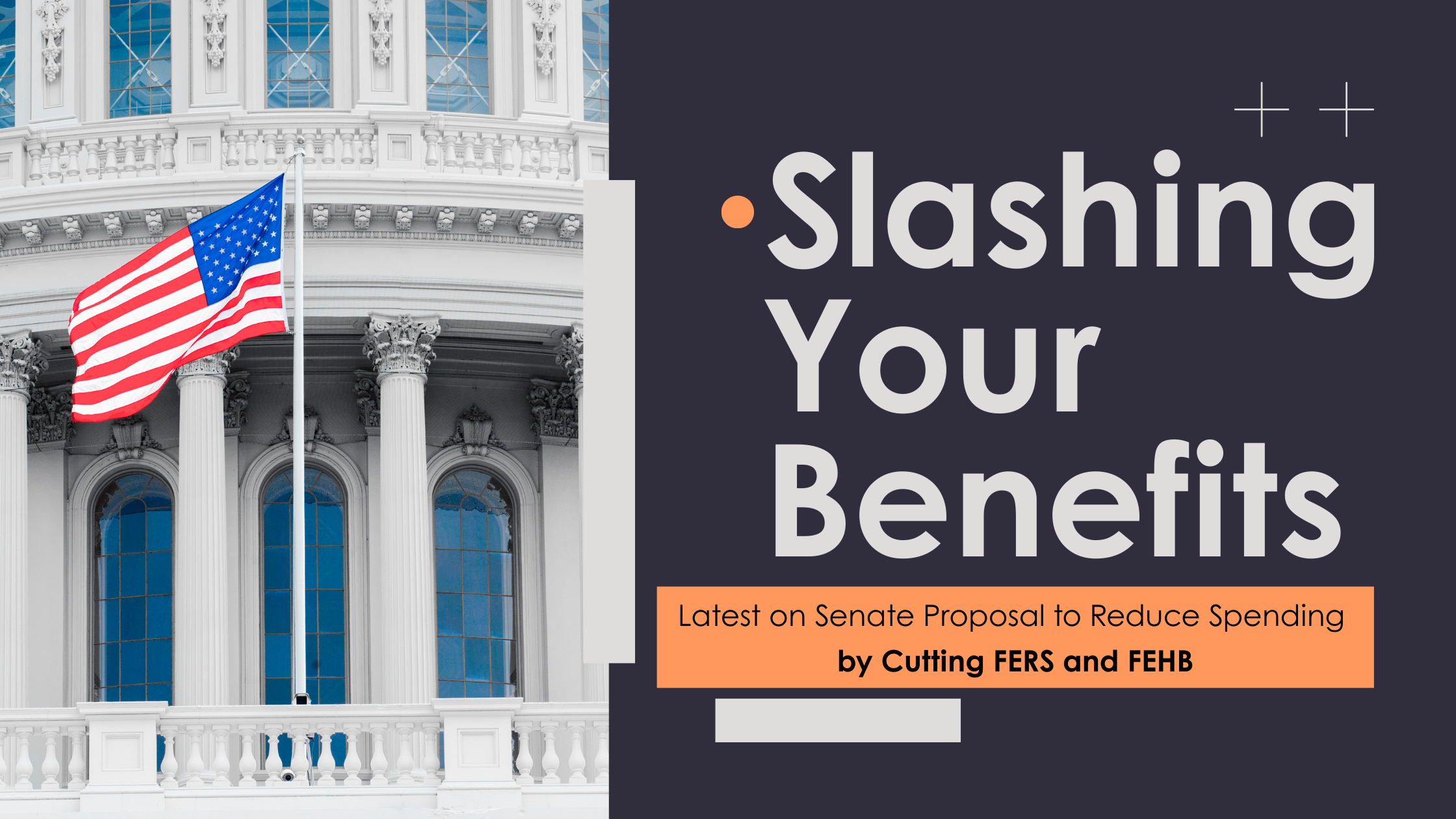Senate committee approved a budget outline with federal employee benefit cuts. Now the House will review proposed government budget resolution and potential impact on federal employees.
Understanding Federal Employee Benefits Amid Proposed Cuts
The landscape of federal employee benefits is poised for significant changes as Congress proposes cuts that could reshape the financial and health security of millions of federal workers. These proposed cuts have sparked widespread concern among employees and retirees who rely on these benefits as a crucial part of their compensation package. Understanding the scope and impact of these changes is essential for federal employees to navigate the potential challenges ahead.
Read the essential guide for federal retirement planning.
Proposed Federal Employee Benefit Cuts Approved by Senate
A budget resolution got the thumbs up from Senators recently, meaning a proposal has been sent to the House Committee on Oversight and Government Reform for deliberation. The proposal instructs the committee to draft legislation that would cut at least 50 billion dollars of federal spending, and suggests some methods on how to accomplish this – all of which would negatively impact federal employees.
Proposed Cuts to Federal Employee Retirement System (FERS)
There are three suggested ways to reduce federal spending on FERS in the proposal:
- Changing the “High-3” to “High-5” – When calculating one’s pension income, the number of years served is multiplied by either 1.0% or 1.1% and then multiplied by the high three average salary, which is the average salary of the highest paid 36 months. Changing this from three years to the highest five consecutive salary years, or 60 months, would effectively reduce FERS retirement benefits. Read this article for more information about the impact of FERS switching from high three salary to a high five. (Estimate your federal pension with our FERS calculator.)
- Increasing employee contributions to FERS – At the moment, only federal workers who were hired in 2014 or later contribute 4.4 percent of salary toward the retirement pension fund. One of the proposed cuts was changing all FERS contributions to the 4.4% figure. Those hired in 2013 currently contribute 3.3% and the contribution rate for all other workers is just 0.8%. For FERS employees to contribute 4.4 percent of salary to retirement, the Government would have to put in less, but a lot of feds (more than half of FERS employees) would see smaller net pay amounts.
- Ending the Annuity Supplement for Those Who Retire Under FERS Before Age 62 – Eliminating the FERS Special Retirement Supplement (SRS) would especially impact special provisions workers who are required to retire before they can claim social security benefits, one of the three important pieces of FERS income. Some workers may have recently retired or accepted the deferred resignation offer with the expectation of income from the SRS. Eliminating the benefit for the sake of the congressional budget will significantly alter the retirement plan for numerous federal employees.
Start planning for retirement from the federal government – register for a federal retirement webinar.
Federal Spending Cuts Could Increase an Employee’s Health Costs
Other the FERS pension, two suggestions were mentioned in the proposal sent to the house oversight committee regarding FEHBP (the federal employees health benefits program):
- Alter the Sharing System in the FEHB – Instead of the government covering the cost of 72 to 75% of health premiums for active employees, changing the premium sharing system to reduce the cost for the government and increase the portion feds pay was offered in the proposal that passed with a majority vote in the Senate. FEHB premiums have been steadily increasing already and pushing more the cost onto federal employee would negatively affect the financial plan and retirement strategy for most members of the federal workforce.
- Shift FEHB to a Voucher System – Offering vouchers for specific services or insurance packages would diminish the value of continuing FEHB participation in retirement. While the details of such a significant shift are vague at the moment, it is unlikely to improve healthcare affordability for federal workers.
How Can Employees Prepare for Potential Health Insurance Changes?
To prepare for potential changes in health insurance, federal employees should review their current coverage and assess their healthcare needs. Exploring alternative work schedules or telework options could help mitigate the impact of increased healthcare costs. Additionally, employees should stay informed about legislative developments and participate in open enrollment periods to make informed decisions about their health insurance plans. Seeking guidance from human resources or financial advisors can also provide valuable insights into managing healthcare expenses effectively.
How Retirement Benefits Will Be Impacted by Implementation of Cuts
Federal employee salaries could be indirectly affected by the proposed benefit cuts. As the government’s share of retirement and health insurance costs decreases, employees may need to allocate a larger portion of their salary toward their retirement benefits and health insurance premiums – possibly reducing the amount they are able to contribute to the TSP. This shift could effectively reduce take-home pay, altering the financial planning and stability of federal workers. The proposed changes may also influence the attractiveness of federal jobs, as the benefits package is a significant factor in recruitment and retention.
How Employees Can Adjust Their Financial Plans
Adjusting financial plans is crucial for federal employees facing potential benefit cuts. Employees should review their budgets and consider increasing their savings to compensate for higher out-of-pocket costs. Exploring alternative investment options and retirement savings plans can also enhance financial security. Employees may benefit from consulting financial advisors to develop strategies that align with their long-term goals and mitigate the impact of reduced benefits.
Meet with an Expert in Federal Employee Retirement Benefits.
What Is the Role of the Oversight Committee in These Proposals?
How Has the Committee Approved the Budget for These Cuts?
The Oversight Committee plays a crucial role in reviewing and approving the budget proposals that include cuts to federal employee benefits. The committee evaluates the fiscal implications and policy objectives of the proposed changes, ensuring they align with the government’s broader budgetary goals. Once the committee has approved a budget outline, it sets the stage for further legislative action and potential implementation of the proposed cuts. Understanding the committee’s role is essential for employees to grasp the legislative process and its impact on their benefits.
What Are the Key Arguments for and Against the Proposed Cuts?
The proposed cuts to federal employee benefits have sparked a debate with strong arguments on both sides. Proponents argue that reducing the government’s financial obligations is necessary for fiscal sustainability and budget reconciliation. They contend that the cuts are a responsible measure to address the growing national debt. Opponents, however, argue that the cuts unfairly target federal employees, undermining their financial security and job satisfaction. They emphasize the importance of maintaining competitive benefits to attract and retain a skilled federal workforce.
Reach Out to Us!
If you have additional federal benefit questions, contact our team of CERTIFIED FINANCIAL PLANNER™ (CFP®) and Chartered Federal Employee Benefits Consultants (ChFEBC℠). We also hold the Accredited Investment Fiduciary (AIF®) designation. At PlanWell, we are federal employee financial advisors with a focus on retirement planning. Learn more about our process designed for the career fed.
Preparing for federal retirement? Check out our scheduled federal retirement workshops. Sign up for our no-cost federal retirement webinars using helpful online training. Make sure to plan ahead and reserve your seat for our FERS webinar, held every three weeks. Want to have PlanWell host a federal retirement seminar for your agency? Reach out, and we’ll collaborate with HR to arrange an on-site FERS seminar.










